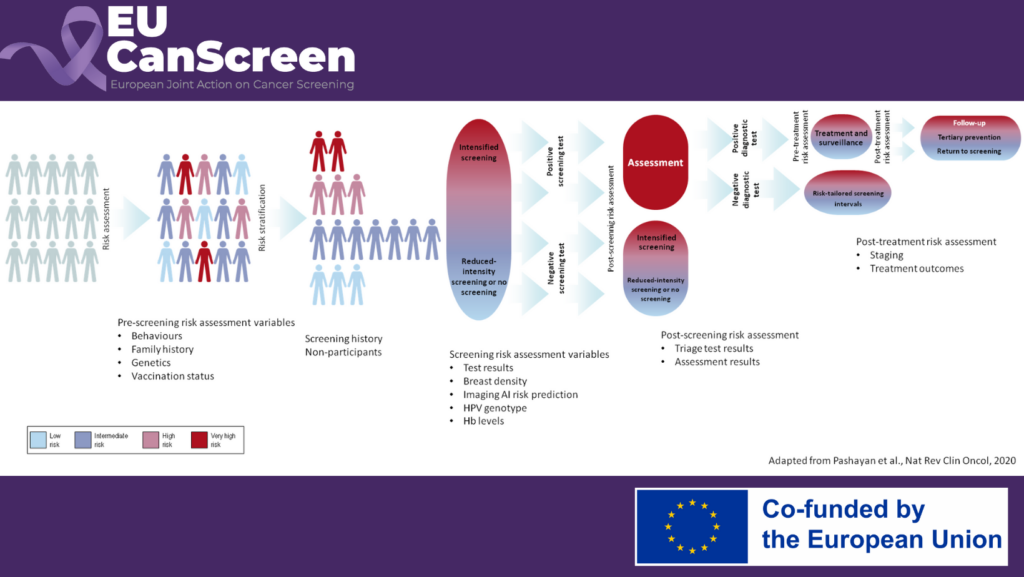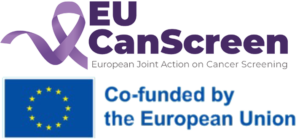JULY 2025
Project Updates
Defining a Framework for Risk-Based Screening
The European Council recommendations on cancer screening propose risk stratification, when appropriate, as a strategy to improve the balance between desirable and undesirable screening effects: benefits occurs in those who have or will have the disease, thus are proportional to risk, while harms affects all the screened population.
A scoping review was conducted to identify relevant literature. Essential elements and relevant topics were identified by a structured brainstorming session with public health decision-makers, professionals, researchers and other stakeholders, followed by a plenary discussion, finalizing the document in May 2025 in Turin at EUCanScreen meeting.
The essential elements of risk-stratified screening are the information for estimating individuals’ risk, the presence of validated stratification criteria, and stratum-specific management protocols. Risk stratification can be performed at any step of the screening pathway.
The brainstorming exercise further identified a list of organizational ethical, legal, and social issues to be assessed in the evaluation of risk-stratified screening.
This collaborative effort identified core elements and relevant topics to be considered in the definition, planning, and evaluation of risk-stratified screening, paving the way for harmonizing the assessment of risk stratification opportunities in the recommended screening programs.
The document has been presented at the International Cancer Screening Network conference in Aarhus, Denmark, on June 30, and it is now available on the JA site.
Authors:
- -Paolo Giorgi Rossi, Andrea Guida, Massimo Vicentini, Laura Bonvicini. Azienda USL – IRCCS di Reggio Emilia, Italy
- -Carlo Senore, Livia Giordano Paola Armaroli, Gianluigi Ferrante, Cristiano Piccinelli. Epidemiology and screening unit-CPO, University hospital Città della Salute e della Scienza, Turin Italy
- -Suzette Delaloge, Department of Cancer Medicine, Interception Programme, Gustave Roussy, Villejuif, France
- –Tala Haddad, Unicancer, Paris, France
- –Cinzia Colombo, Istituto di ricerche farmacologiche Mario Negri Irccs. Milan, Italy
- –Paola Mantellini, Elisa Betti, Istituto per lo Studio la Prevenzione e la Rete Oncologica, Florence, Italy.
- –Gabrielle Schittecatte, Belgian Cancer Centre, Sciensano, Brussels, Belgium
- –Béatrice Fervers, Centre Léon Bérard – Université Lyon 1, France
on behalf of the EUCanScreen JA Risk-Stratified Working Group.
Subscribe to our newsletter to get news and updates.
Subscribe to our newsletter to get news and updates.

The general objective of EUCanScreen is to assure sustainable implementation of high-quality screening for breast, cervical and colorectal cancers, as well as implementation of the recently recommended screening programs – for lung, prostate and gastric cancers. EUCanScreen will facilitate the reduction of cancer burden and achieving equity across the EU.
This project has received funding from the European Union’s EU4HEALTH Programme under the Grant Agreement no 101162959











